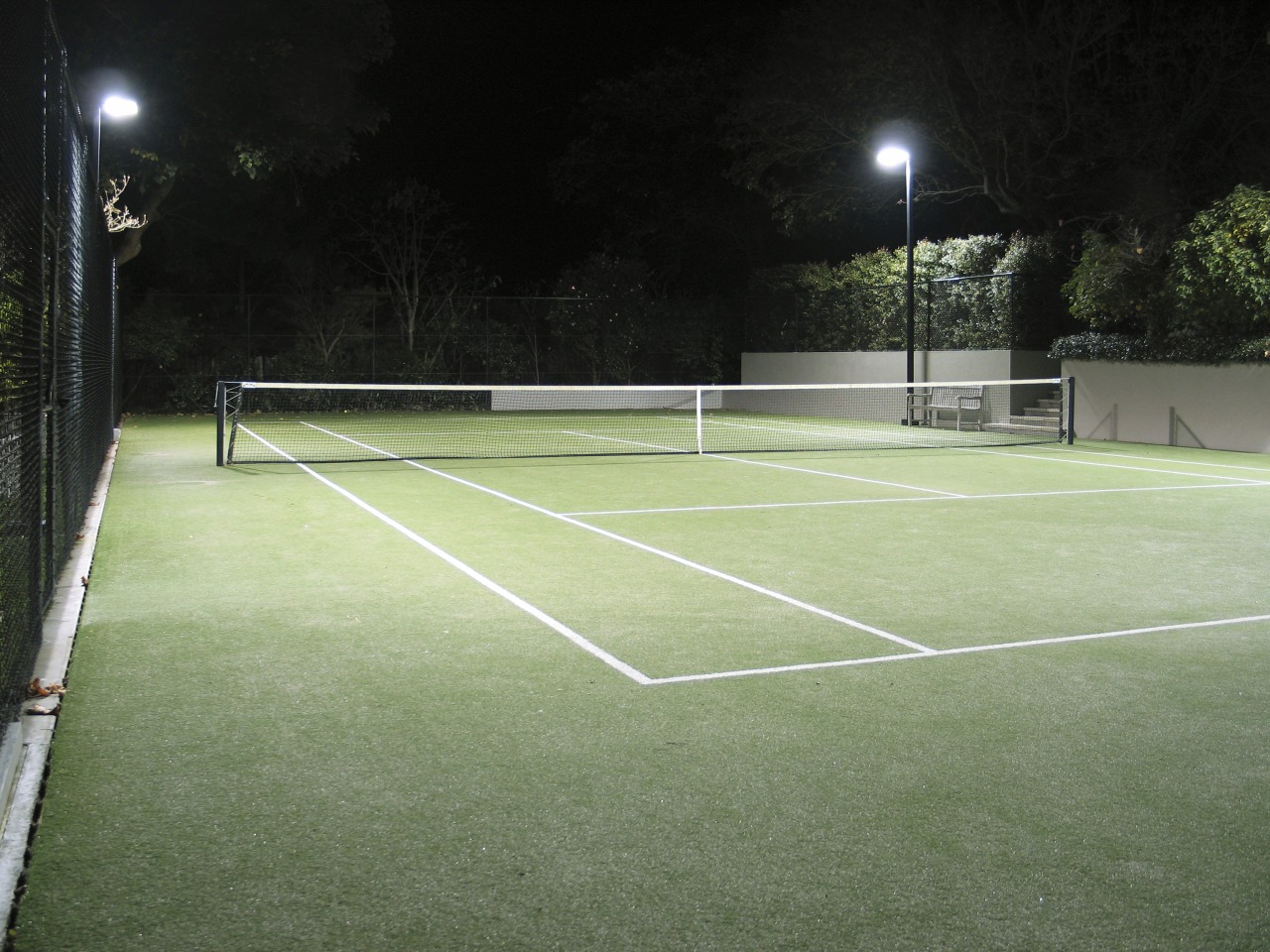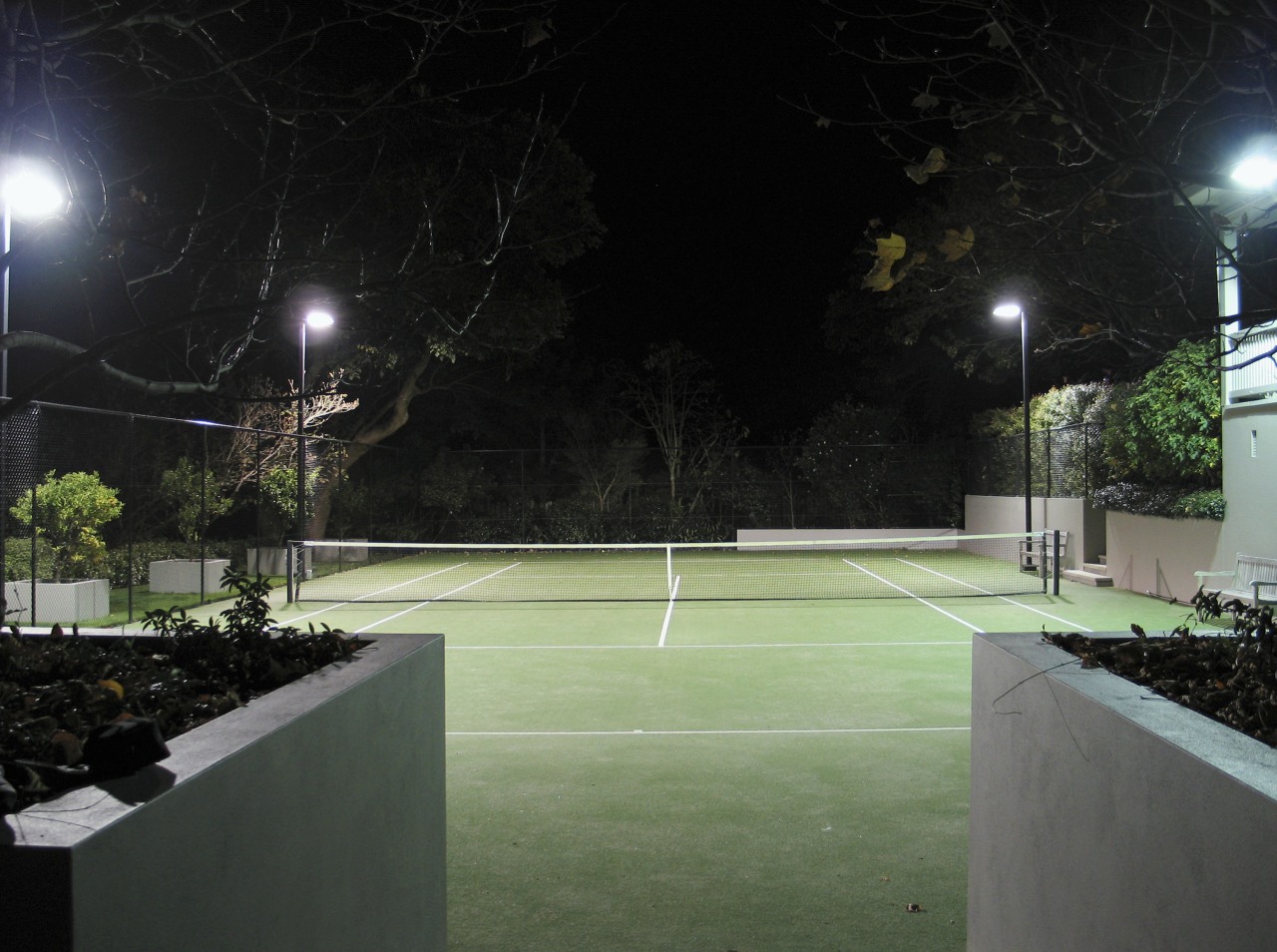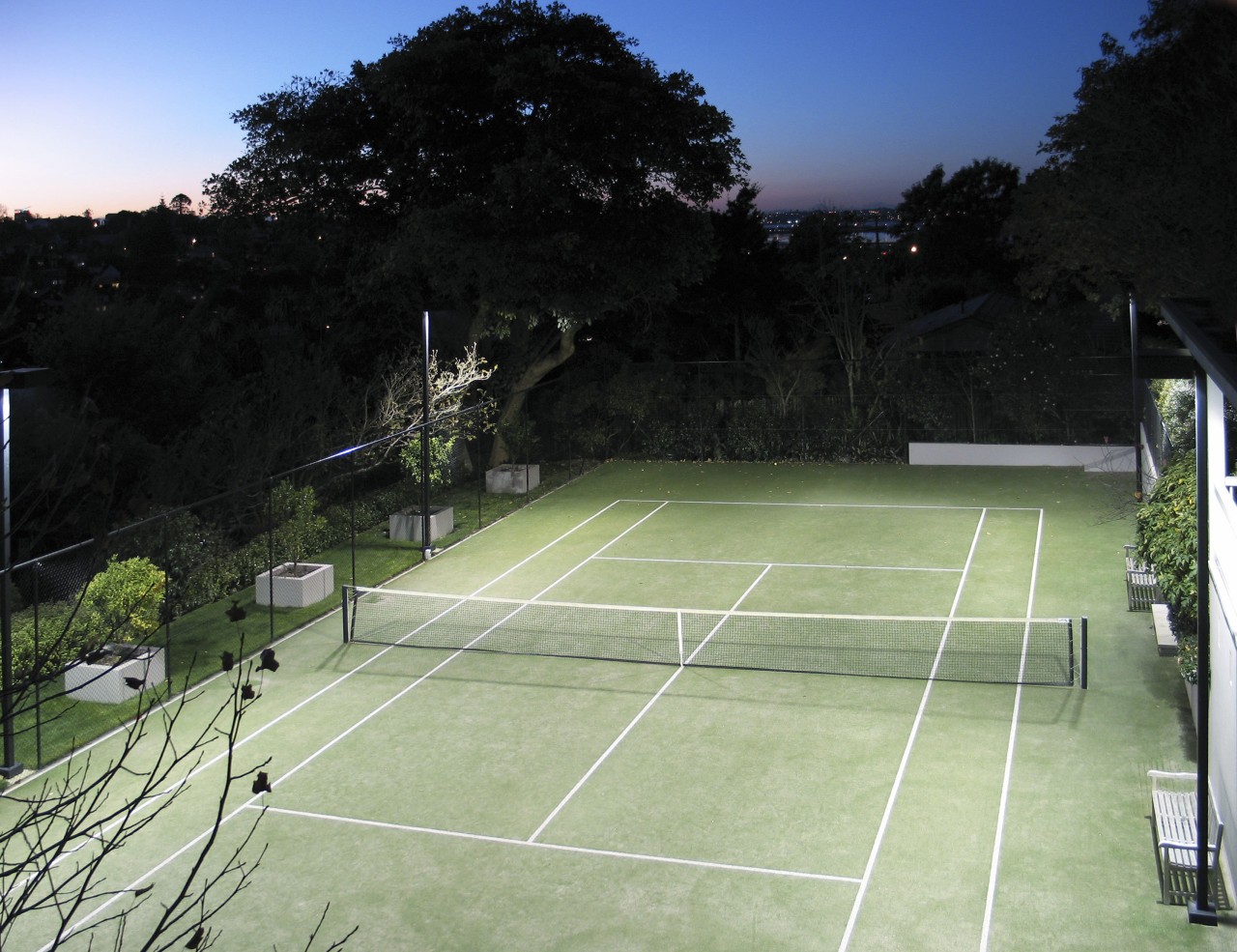Night game
Specific illumination technologies contain the light on this residential tennis court, while still allowing for safe play

Most city dwellers keep noise levels to a minimum to avoid disputes with the neighbours. However, when a family enjoys evening games of tennis, there is also spillover of light to be considered.
Lighting a residential tennis court involves providing a level of illumination that is sufficient to play safely at night, but the light should be contained on the court, says Antony Collett from Advanced Lighting Technologies NZ.

"For this project, to achieve a bright and uniform level of light that meets the standard required for residential tennis courts, four 1000W full cut-off flat glass metal halide floodlights atop 6m-high columns were installed. Light spillover was further reduced by internal backlight shields, which cut the light off from behind."
To minimise glare and prevent the ball being viewed against a bright light source, the floodlights are positioned along the sides of the court rather than the ends.

As a technical member of the Illuminating Engineering Society (IES) of Australia and New Zealand, Collett keeps up to date with developments in lighting technology. The IES works to advance the art and science of illumination, and provides information to interested parties. Members include engineers, architects, students, contractors, manufacturers and educators. Benefits of membership include being able to attend seminars, contribute to research and enter competitions.
For information on Advanced Lighting Technologies, contact Antony Collett on (09) 415 6332. For details on IES Incorporated, visit the website: www.iesanz.org.
Story by: Trendsideas
Home kitchen bathroom commercial design




